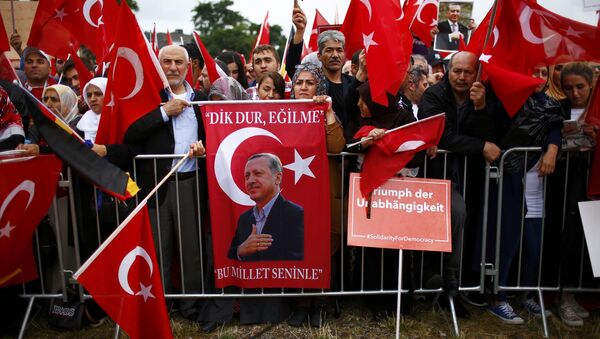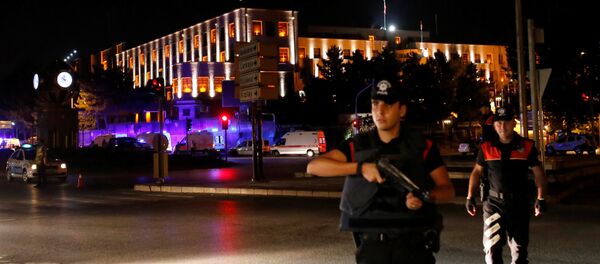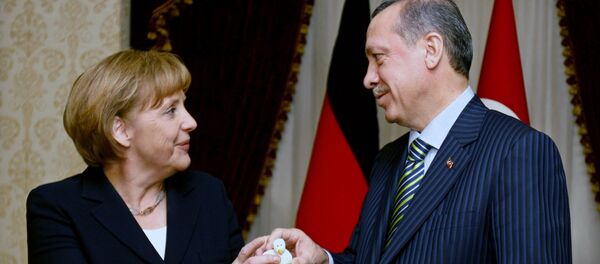In recent years, the numbers of people of Turkish descent, living and working in Germany, has reached 3 million, half of whom have retained their Turkish citizenship and are able to vote in national elections in Germany.
However, relations between Berlin and Ankara have become strained, particularly over Germany's parliament voting in June to call the massacre of Armenians in 1915 "genocide."
By this step, #Germany makes remarkable contribution to efforts of int/community aimed at prevention of #genocide's, #crimesagainsthumanity.
— MFA of Armenia (@MFAofArmenia) June 30, 2016
Relations were further strained when German satirist Jan Böhmermann broadcast a poem on ZDF television.
Sitting in front of a portrait of the Turkish president, Böhmermann read out a poem that accused the Turkish president of "repressing minorities, kicking Kurds and slapping Christians while watching child porn," among other things.
Erdogan has demanded that Böhmermann be prosecuted, which German Chancellor Angela Merkel has allowed.
Turkish Clashes
However, tensions within Germany have risen, following the failed coup in July which Erdogan has accused of being promoted by the US and the 75-year-old US-based cleric, Fethullah Gulen, who Turkey wants to extradite.
VIDEO: Erdogan supporters attack school associated w/ Gulen in #Germany after failed coup —@thevocaleurope pic.twitter.com/zsQWUVa1c2
— Conflict News (@Conflicts) 17 July 2016
There have been clashes in Germany between supporters of Erdogan and Gulen, with nearly 40,000 pro-Erdogan fans staging a rally in Cologne in support of the Turkish president. The tensions could not have come at a worse time for German Chancellor Angela Merkel, who is still trying the keep the controversial EU-Turkey migrant deal on track.
#Turkey sets up concentration camps for Gulenists. @hrw @CNN @WSJ @washingtonpost @BBCWorld @AmnestyOnline pic.twitter.com/u5aZUGAsAu
— Hate Crime (@HateCrimeTR) 14 August 2016
Under the deal, the EU was due to pay Turkey — initially — US$3.95 billion to bolster its refugee camps and accept "irregular" migrants denied asylum in Greece in return — on a one-for-one basis — for Syrian refugees in Turkey being relocated in the EU.
However, as part of the deal, the EU was supposed to grant Turkish citizens visa-free access to the EU by the end of July and accelerate its accession to becoming a full member of the EU.
The deal had already hit trouble over Erdogan's increasing grip on power, crackdown on opposition parties and the media as well as criticism of his human rights record. Since the attempted coup, however, his massive suppression of those associated with the coup — the judiciary, the military and the police — have caused further tensions between Turkey and the EU.
If Turkey fails to meet the basic benchmarks on democracy and human rights required by the EU, the visa-free travel deal will be abandoned and — with it — the whole migrant deal, once again leading to another flood of migrants crossing into Europe.




